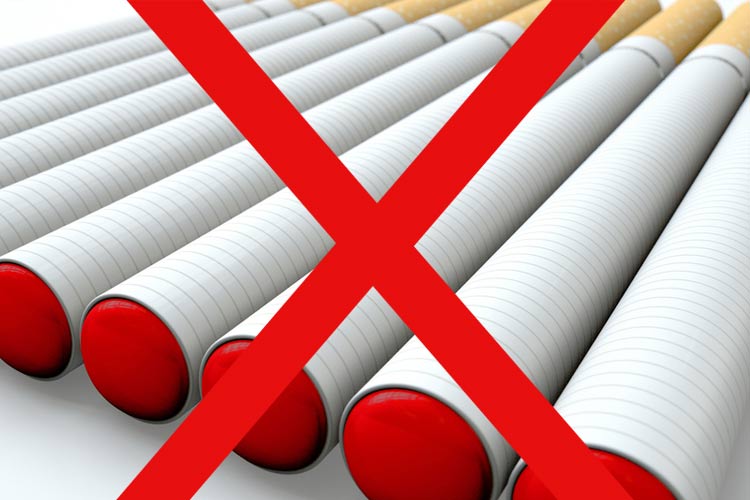1. This sobering story of the Vape health crisis continues to develop
Here is a brief attempt at current status:
News sources report that vape-related lung injuries have reached 1,300 cases and 29 deaths nationwide, creating a vape health crisis. See the New York Times story here
Read our post on the continuing Vape crisis here
These numbers will continue to rise.
Cases have been reported in jurisdictions that have legalized adult/recreational use and those which have not. The overwhelming majority of victims vaped with THC products. However, 13% of victims vaped exclusively with nicotine products.
Health officials remain stymied as to cause
There was a growing focus on black-market ingredients with oil-based diluting agents, such as Vitamin E-acetate. The inhalation of these oils may result in lipoid pneumonia, a rare but potentially severe condition.
Follow more on the health crisis from September here
However, the Mayo Clinic discovered something far more sinister
Doctors examined biopsies of 17 victims and discovered acute caustic chemical injuries to lung tissue in each case consistent with exposure to deadly gases. This suggests that other currently unidentified and dangerous contaminants are involved.
“While we can’t discount the potential role of lipids, we have not seen anything to suggest this is a problem caused by lipid accumulation in the lungs. It seems to be some kind of direct chemical injury, similar to what one might see with exposures to toxic chemical fumes, poisonous gases and toxic agents.”
Dr. Brandon Larsen, a surgical pathologist at Mayo Clinic Arizona and a lead author of the study.
Read more on the Mayo Clinic News Network

Six (6) states have enacted some form of emergency ban mostly on flavored e-cigarettes.
In the wake of the Vape health crisis, Montana Washington, Oregon, Michigan, Rhode Island, New York and Massachusetts have enacted a ban. New York’s ban has been stayed temporarily by Court order. Massachusetts adopted the broadest remedy by banning the sale of all vapes for four (4) months.
A letter on Cannabis to Congress
More than 800 cannabis industry leaders, led by the National Cannabis Industry Association (NCIA), signed a letter to Congress urging the de-scheduling of THC cannabis as a Schedule 1 drug.
The NCIA argued that public safety comes only with legalization, regulation and inspection. Even Scott Gottlieb, President Trump’s former FDA commissioner, after lamenting about how lax federal oversight allowed cannabis use to flourish, nonetheless conceded that the growing vaping crisis has highlighted a public health need for a
“…middle ground allowing federal agencies to scrutinize these compounds for their manufacturing, marketing and safety.”
Scott Gottlieb, former FDA Commissioner
See the Wall Street Journal article here
If you hit the Wall Street Journal paywall, see Marijuana Moment here
A final nugget to add to this mix
We note that Canada, which legalized adult/recreational use a year ago, has had only one (1) confirmed case of vaping-related pulmonary illness. The vape health crisis is not as serious here. Several other suspected cases are being investigated. All victims recovered. See the Maclean’s article here

2. The SAFE Act passes the House—baby steps!
The Secure and Fair Enforcement (“SAFE”) Banking Act passed the Democratic House of Representatives on September 25.
The SAFE Act would protect banks against federal prosecution for THC cannabis banking in states where adult/recreational use has been legalized.
Coincidentally, in a recent Colorado Sun interview, Colorado’s top federal prosecutor, Jason Dunn, refused to give banks serving state-legitimate cannabis businesses any comfort. He said:
“….we will never tell [banks] that what they are doing is lawful under federal law. There’s always a risk just like a retail marijuana business in Colorado, that they face federal prosecution…”
Jason Dunn, Colorado prosecutor
Wow! And this is Colorado. No wonder banks plead for SAFE Act shelter.
But as hopeful as SAFE Act passage may be for the industry, this legislation faces hard times getting through the Senate. Mitch McConnell remains the gatekeeper and McConnell has long expressed antipathy towards adult/recreational use. See the MarketWatch article here
Actually, the SAFE ACT has been criticized for not going far enough.
Critics argue that public policy should protect more than banks. All who come into contact with cannabis should be protected.
For example, The Strengthening the Tenth Amendment Through Entrusting States (“STATES”) Act would de-schedule cannabis in those states which have legalized adult/recreational use.
Such a de-scheduling would not only loosen banking restrictions in those states but: federal criminality would be removed, income tax equity would occur, trademark and bankruptcy protection would be extended, insurance would be easier to obtain, real estate leases would be easier to negotiate, etc., etc.
But, the STATES ACT is a political pipe dream for now. If we only get the SAFE Act—and even that will be tough—it will have to suffice. Maybe it takes baby steps to achieve full legalization.
3. New York opinion poll on legalizing cannabis use
New York’s state legislature is to reconvene in a few months and will consider adult/recreational use. We note a Siena College Poll, involving phone interviews and online surveys of about 800 New York adults from September 22-October 1. The survey showed that 56% of respondents agreed that adult/recreational use should be legalized. See Marijuana Moment here
4. Al Capone saves Colorado labor laws
The U.S. Court of Appeals for the 10th Circuit ruled on Sept. 20 that Colorado’s cannabis industry is subject to federal labor laws such as overtime pay.
This deserves emphasis: An industry promoting a federally illegal Schedule 1 drug must nonetheless receive federal protections.
At one point, the 10th Circuit reached back to Al Capone, who was jailed for tax evasion on his illegal income. If Al Capone was subject to federal law— taxation in his instance—on his illegal business, it follows that federally illegal cannabis is also subject to federal law, such as overtime regulation. See the Denver Post article here

5. Cannabis as an investment
For those who believe that cannabis is the next gold rush — tread carefully. Most people predict explosive growth will come for the industry.
However, the first year of legal cannabis in Canada has left investors shell-shocked, yielding an average negative return of 57% for the 10 largest companies. See the Financial Post article here
Will this affect industry capital raises and expansion plans?

1. Virginia Attorney General Mark Herring announced that
“[Virginia] should decriminalize possession of small amounts of marijuana, address past convictions and start moving toward legal and regulated adult use.”
Mark Herring, Virginia Attorney General
2. Cannabis news from Mexico
The Senate leader of Mexico’s ruling party predicted that Mexico will approve adult/recreational use by the end of October 2019. Mexico’s President disagrees.
Pushing these events is Mexico’s Supreme Court, which already ruled 5 times that the country’s ban on recreational use was unconstitutional. The 5th such ruling means that Mexico law now holds that adult/recreational use is legal.
But no legal framework for sale exists until the government acts.
3. Cannabis movement in Maine
Maine is finally on track to launch its adult-use industry by March 2020.
__________________________________________________________________________
I’d love to hear back if you have any comments, revisions, or more color to add on the Vape health crisis at doug@wassruss.com.
And in shameless promotion of our firm’s past cannabis news blogs, we invite you to read all our cannabis news posts here


